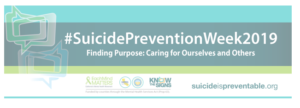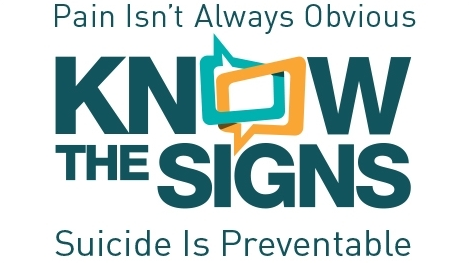
First responders serve as professional helpers in their communities, and they are almost daily on the front lines of challenging and potentially life-threatening situations.
It is not hard to imagine how stressful the job can be, and that the impacts of traumatic incidents can add up. First responders are also characterized by several factors that can protect against suicide risk. While the work can be tough, it also offers many rewards and a strong sense of purpose and meaning. First responders are often strongly connected to their peers, view one another as family, and watch out for each other.
This week, consider reaching out to first responders in your community to show your support and appreciation for their service. If you know a firefighter, police officer, or EMT thank them for the hard work they do. Taking care of themselves and their mental health might not always be at the forefront of their priorities. Remind them that their community cares about them as much as they care for those they serve to protect.
The Each Mind Matters Activation Kit includes information about resources you can share with first responder organizations in your community.
But even if you are not a first responder, you can do something to create a caring community. Everyone can practice kindness. Research shows that kindness produces measurable changes in our mood and in our bodies. Acts of kindess are associated with increases in oxytocin, the “love hormone” that aids in reducing blood pressure and increasing heart health. Moreover, the positive effects of kindess can be measured in the brain of everyone who witnessed the act, leading to a domino effect that brightens everyone’s day. Read these Kindess Health Facts to learn more.
No matter how stretched thin you are, it costs nothing and just a few minutes of your time to practice kindness. It can be as simple as a few thoughtful words. People we encounter every day may be experiencing problems we know nothing about, and that random act of kindness might brighten their day.
• If you know someone has been struggling, stop in to see them or give them a call. If they live far away, send them a note. A lot of people reading this are professional helpers already.
• Share what you know about mental wellness and suicide prevention with others as freely as you can. What may seem overly simple or obvious to you could be a revelation for someone else.
• Volunteer! Helping others also reinforces our social need to connect and feel a part of something bigger. Communities rely on volunteers for delivering goods or services to people in need, sitting on Boards or serving on advisory committees, cleaning up parks and roadways, planning and organizing events, and to share professional or personal skills to benefit others. Insert local volunteer opportunities if available.

